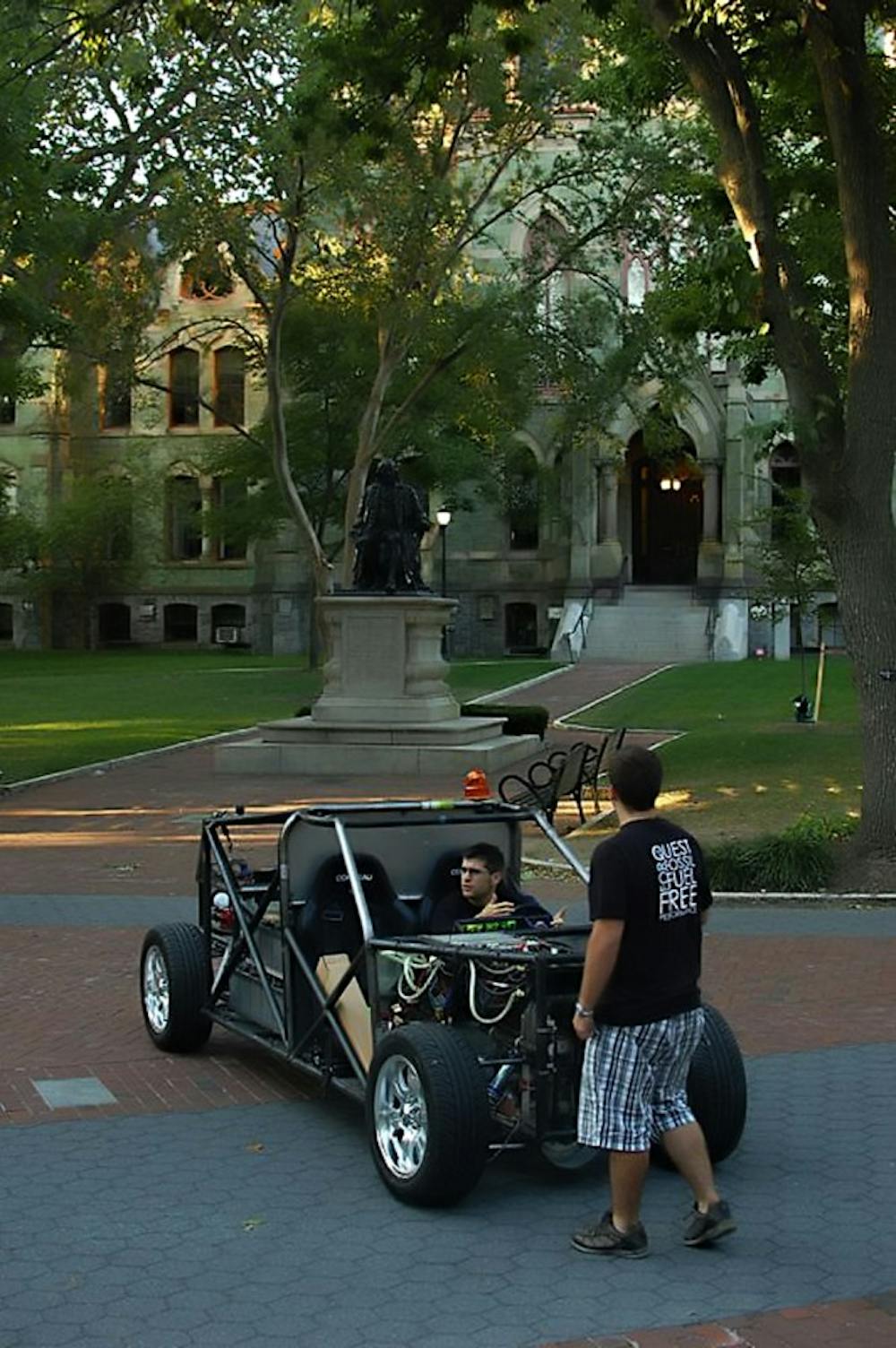The Renegade Car may not look very cutting-edge, but don’t judge an electric drag racer by its body work.
Student group Penn Electric Racing has been working for about four years now to build an electric car completely from scratch. “Their purpose is to develop and build — really from the pavement up — an electric car,” faculty advisor Robert Jeffcoat said.
Before 2006, the group had focused on solar-energy cars. For about fifteen years, their creations competed in solar car races — “and they were good at it,” Jeffcoat said.
But the group “decided that the future is somewhere else,” he explained. And according to Engineering senior and Penn Electric Racing captain William Price, “battery-electric vehicles were showing more signs of becoming a practical alternative to gas cars.”
Electric cars have an edge on solar cars because they are infinitely more adaptable, Jeffcoat said. Such a car could run off of fuel supplies as diverse as hydrogen, nuclear power, batteries and gasoline.
The group’s current project is the Renegade Car. “They really wanted to do the whole thing, to put [it] together,” Jeffcoat explained.
And the group was not content to just build an all-electric car, Price said. “Part of the motivation behind this was to break the stereotype that electric cars are slow and boring.”
The team plans to prove with the Renegade Car that electric cars can compete with racing cars on a drag strip, but this mission is also the group’s greatest challenge. The students involved in the project have academic backgrounds, but the car’s construction demands an understanding of practical issues, and “these things are not in the curriculum,” Jeffcoat said.
According to Price, engineering classes provide a “solid foundation in terms of theory, but it’s a completely different story to transfer that into a project.”
Although Jeffcoat is the group’s advisor, he sees his own contribution as minimal. “This is really their show,” he said. All the technical, hands-on tasks that the team completes “are things they learned themselves, they bootstrapped, they taught each other.”
The group’s independent learning is, for Jeffcoat, central to the project. He sees the group members’ skills as complementary to their classroom engineering educations. “Some things they just aren’t going to get in the classroom,” he said.
Penn Electric Racing is teaching and learning as much as it is creating. The group has grown from about eight students last year to about 40, which Price believes will allow freshman to get “exposure to all this practical stuff that they wouldn’t otherwise have exposure to” in their classes.
The Renegade Car, which was originally designed as a skeleton, has recently undergone body work which has made it a “nice aerodynamically formed car” that Jeffcoat and the team will be proud to show off at a hot-rod event on April 30th.
In the future, the team hopes to incorporate technology that will put the motors into the wheels of Renegade Cars and its long term goals include making vehicles that will be street legal. First, however, the team is looking forward to proving that its creation can be competitive at the race later this spring.
Cars like the Renegade may not have “reached the level of refinement that gasoline cars have,” but their adaptability makes them the future of the automotive industry, Jeffcoat said. “This is definitely a big chunk of the future,” he added.



